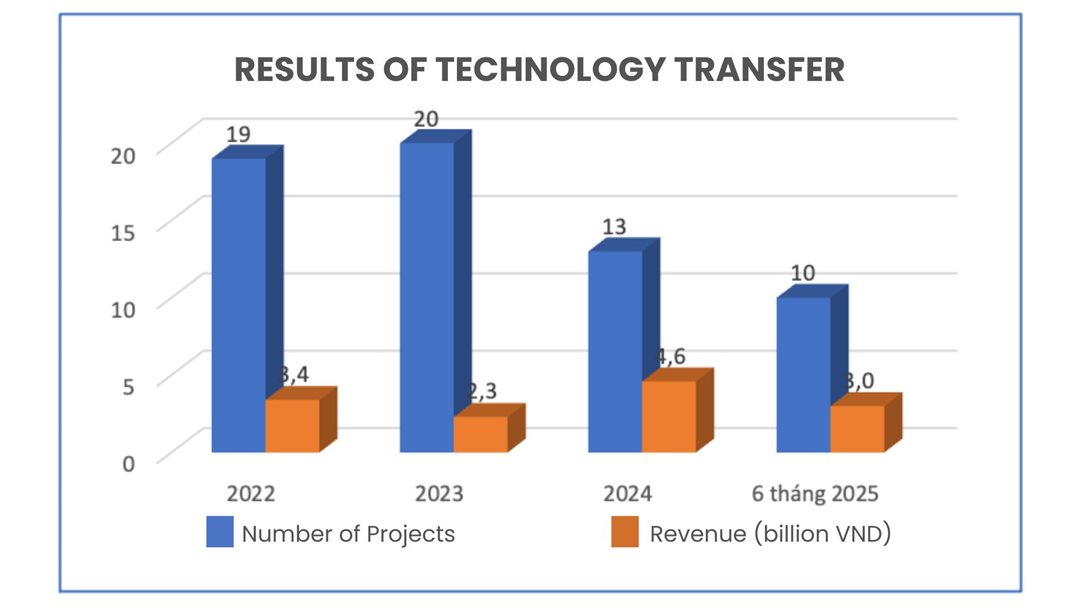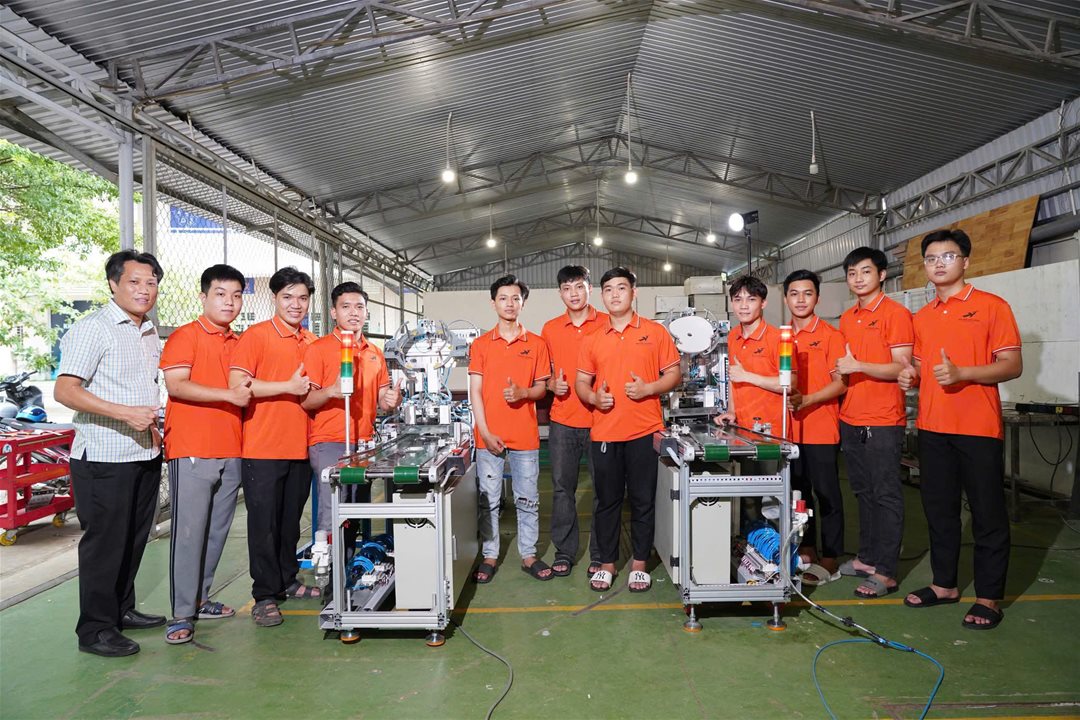Research
CONTENTS
"Golden Face" of Technology Transfer
In the first six months of 2025, Lac Hong University's (LHU) Faculty of Electrical and Electronic Engineering successfully transferred 10 technology projects, generating nearly 3 billion VND in revenue. This remarkable achievement underscores the university's exceptional research and application capabilities, transforming knowledge into actual economic value for businesses.

From Lab to Factory
This impressive success is not coincidental but stems from a well-structured strategy that proactively converts business challenges into research topics. Each technology transfer contract exemplifies how faculty and students collaborate with enterprises to solve complex technical problems. Dr. Pham Van Toan, Dean of the Faculty of Electrical and Electronic Engineering, stated, "Our philosophy is not to wait. The Faculty actively seeks partners, understands their concerns and production line difficulties, and proposes collaborative solutions. We build trust through practical capabilities, demonstrating that LHU-developed technical solutions can effectively compete on efficiency and offer superior cost optimization compared to imported alternatives."
Numerous major projects have been successfully transferred, notably the "Design and Manufacturing of AGV (Automated Guided Vehicle)" for LIXIL Vietnam Global Manufacturing Co., Ltd. (a subsidiary of Japan's LIXIL Group) and the "Research, Design, and Manufacturing of a Semi-Automatic Abrasive Roll Assembly Machine" for Lovetex Industrial Vietnam Joint Stock Company (a Taiwanese enterprise). The Lovetex project, undertaken by a student team led by Tran Van Hung, completely resolved issues of manual assembly and inconsistent product quality, significantly improving output and efficiency. This "made-in-LHU" machine is not only stable and continuously operational but also helped the company save 50% on labor costs and reduced investment expenses compared to imported machinery (500 million VND versus 800 million VND from China).

The research team delivered the semi-automatic abrasive roll assembly machine to the company.
The Dean of LHU's Faculty of Electrical and Electronic Engineering revealed, "This directly helps local enterprises, especially SMEs, enhance their competitiveness, expand production, and deepen their participation in supply chains." From 2022 to mid-2025, the Faculty has transferred numerous specialized projects, including the AGV project for LIXIL Group and the 500 million VND project that replaced 800 million VND worth of imported equipment.
The "Win-Win" Cooperation Model: A Closed-Loop Chain
The success of these technology transfer projects is built upon a standardized "Win-Win" cooperation model, creating a closed-loop chain: "Market – Research – Transfer." This process involves the Faculty proactively receiving "orders" from businesses, with faculty and students collaboratively analyzing, designing, manufacturing, testing, and installing the product directly at the partner's factory. Crucially, the Faculty provides ongoing technical support, maintenance, and upgrades, ensuring a long-term strategic partnership. Dr. Toan emphasized, "No one understands and resolves issues faster than the partner who designed the product. If imported machinery breaks down, it might take 2-3 weeks for repair personnel to arrive; meanwhile, we can be on-site to resolve the issue in just 3-4 hours."
This multi-faceted model offers several benefits: businesses receive customized technological solutions at reasonable costs; faculty members update their practical technological knowledge and gain additional research funding; and significantly, students gain an authentic real-world learning environment encompassing design, fabrication, testing, assembly, and handover. Nguyen Hoai Thanh, a third-year student and member of the Lovetex project, enthusiastically shared, "Participating in this project felt like learning three years' worth of knowledge in five months. We not only applied theoretical concepts but also learned about project management, working with clients, and solving real-world problems. These invaluable experiences have made me much more confident, helped me understand myself, and envision my future career path."
LHU: An Ecosystem of Knowledge Driving Sustainable Impact
LHU's Faculty of Electrical and Electronic Engineering has firmly established itself as a prominent contributor to applied scientific research and a "golden face" in technology transfer. The impressive revenue figures serve as compelling evidence of the effectiveness of an ecosystem where knowledge is honed in practice and readily creates value for society.
LHU's contributions are deeply aligned with the Sustainable Development Goals (SDGs):
-
SDG 4 (Quality Education): By providing a hands-on learning environment and collaborating on business projects, LHU equips students with practical skills and problem-solving capabilities, fostering lifelong learning and high-quality education.
-
SDG 9 (Industry, Innovation, and Infrastructure): LHU directly contributes to industrial innovation and sustainable infrastructure development by transferring technology, helping businesses optimize production, enhance competitiveness, and particularly providing SME support in accessing advanced technology.
-
SDG 12 (Responsible Consumption and Production): LHU's technological solutions enable businesses to optimize production processes, reduce waste, and increase efficiency, thereby contributing to sustainable production and more effective resource utilization.
-
SDG 17 (Partnerships for the Goals): The "Win-Win" cooperation model between LHU and businesses exemplifies effective partnerships between academia and industry, promoting knowledge transfer and collaborative innovation to achieve sustainable development goals.
-

